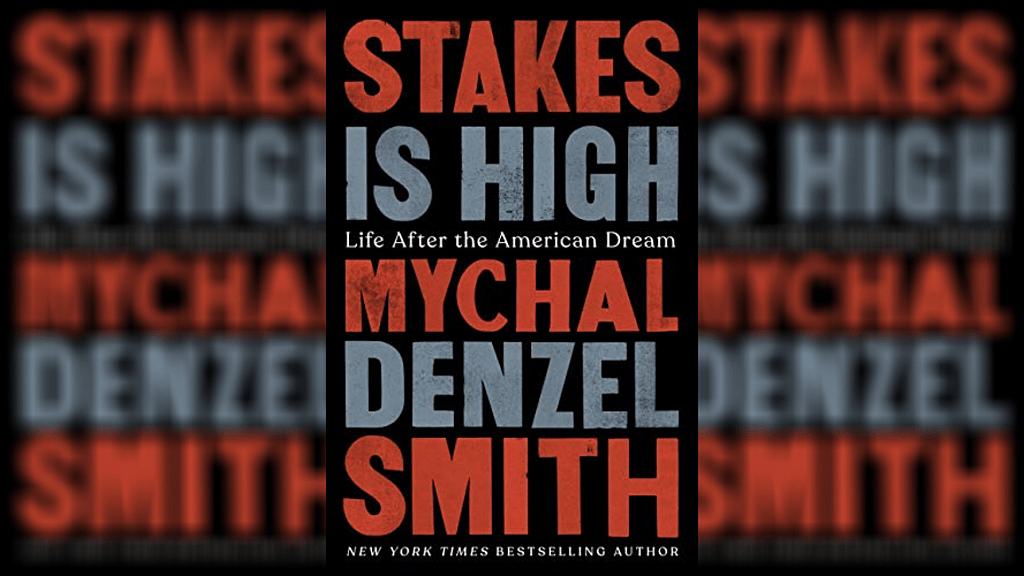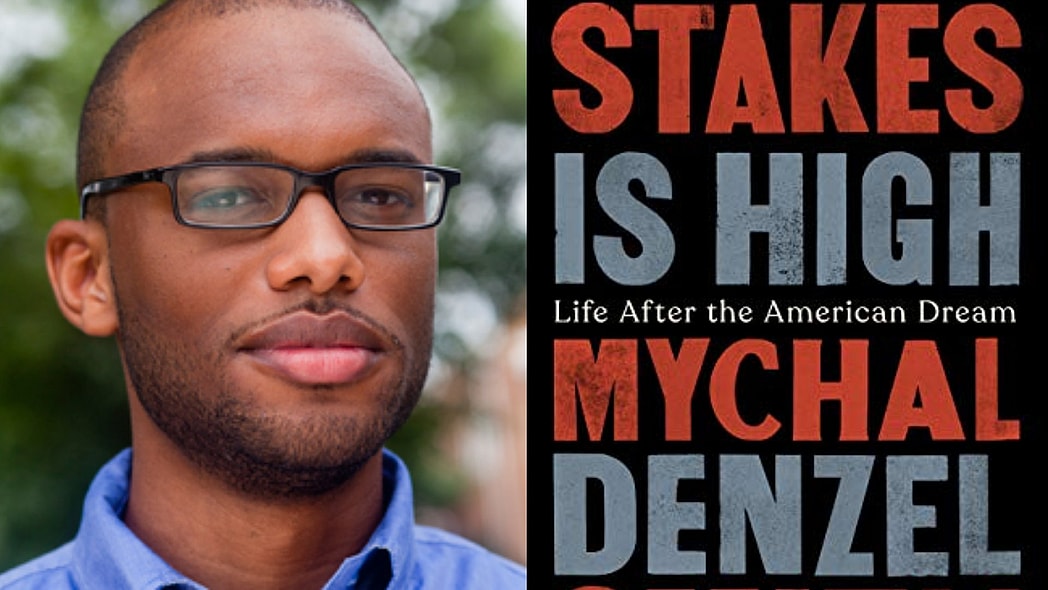“The American Dream is bullshit.”
So writes Mychal Denzel Smith near the end of his second book, “Stakes Is High: Life After the American Dream.” This is a sentiment we hear many times as Smith pens his thoughts on Donald Trump, toxic masculinity, New York City, and the American identity. Divided up into four parts (and with a fitting red, white, and blue cover) “Stakes Is High,” named after De La Soul’s fourth full-length album, defies genres; it is at times a call to arms, a case study, a critique, and a self-interrogation.
Mychal Denzel Smith is the New York Times bestselling author of “Invisible Man, Got the Whole World Watching” and a 2017 NAACP Image Award nominee. From the inauguration of the first Black president to the death of Trayvon Martin, “Invisible Man” — Smith’s first book — is part-memoir, part-political tract as Smith narrates his own millennial coming-of-age in a world where Black men were never intended to.
Read More: Naomi Osaka wears Trayvon Martin mask at US Open: ‘Things have to change’

“Stakes Is High” takes a less personal approach, instead leaning into the research-heavy essayist work we’ve seen from Smith in his pieces for The Nation. Smith writes with authority and clarity — but most importantly, self-awareness. The book never strays into condescension or self-righteousness, but instead presents a clear-eyed and down-to-earth analysis of the broken foundation of the American Dream and how our culture can move past it.
Perhaps the most insightful chapter is the first, “Delusions,” where Smith dissects how Americans, even the most critical among us, still buy into the American Dream, and thus uphold it. “Even as we suffer under the boot of oppression, we are not immune to the indoctrination into the American myth,” he writes. “The promise of a free, equal, and just America in which your own destiny is completely under your own control sounds wonderful, and because it hurts too much to think that your future is controlled by anything more than your own actions, it is easy to fall under this spell…”
Smith does not exclude himself from this critique, acknowledging how even he finds himself holding on desperately to this dream: “There is a part of us that wants to believe that the good of America can outlast the bad.” In this, Smith aptly tears down the figure that Americans have erected of the presidency as a unifying force that serves as a symbol of freedom and democracy, untouched by partisanship and pettiness, and instead asks us to put down our idols and take a sober look at what our country needs to truly live up to its ideals.
Read More: Don Lemon suggests eliminating electoral college amid Supreme Court battle
The danger in idolizing politicians or activists, Smith writes, is that our attempt to memorialize them often diminishes their message, citing the whitewashing of Martin Luther King Jr. into the American zeitgeist despite his controversial stance against the Vietnam War or the public’s disapproval of him at the time of his death.

In the chapter “Justice,” Smith tackles how New York City poses itself as a place of endless opportunity despite rampant homelessness, police violence, economic injustice, and housing segregation. Smith writes of how he, like many others who now call New York home, left his hometown behind in exchange for city lights and subway cars. But all that glitters is not gold, as Smith soon discovers: “When people become problems to solve, it produces a callous indifference toward life.”
“Justice” hones in on the vast income inequality that still plagues New York City as he observes the differences in his neighborhood in Brooklyn and that of the Upper East Side where he treks to appointments with his therapist, whether it be an influx of trash or law enforcement. In the chapter, “Accountability,” he takes a deeper look at how the criminal justice system creates a flawed binary of morality that divides “predators” and “non-predators” rather than examining the culture that creates them; in “Freedom,” he envisions a world where Shirley Chisolm won the presidency in 1972.
Read More: Shirley Chisholm NYC statue to help ‘correct glaring inequity in public spaces’
Among the many books of its kind, scrambling desperately to explain 2020, “Stakes Is High” sets itself apart. The book at times would benefit from a clearer structure that would allow for more throughlines and avoid repetition. Yet still, it is a grounded and necessary take on the falsehood of the American Dream and what our future might look like if we don’t abandon it. As the book’s title and its author suggest: the stakes are high.
Stakes Is High hits shelves on Sept. 15, available in hardcover, ebook, and audiobook.

Noëlle D. Lilley is a Southern California native who loves her alma mater (go, Sun Devils!), reading, Back to the Future, Slurpees, and social justice. She is an Ida B. Wells Scholar, a CNN Media Leadership Project Fellow at the City University of New York. Her work can be found on CNN, KERO-TV/23ABC News, Chicago Reader, The Nation, Arizona PBS, City Limits, BKLYNER, amNewYork, and elsewhere.
Have you subscribed to theGrio’s podcast “Dear Culture”? Download our newest episodes now!


